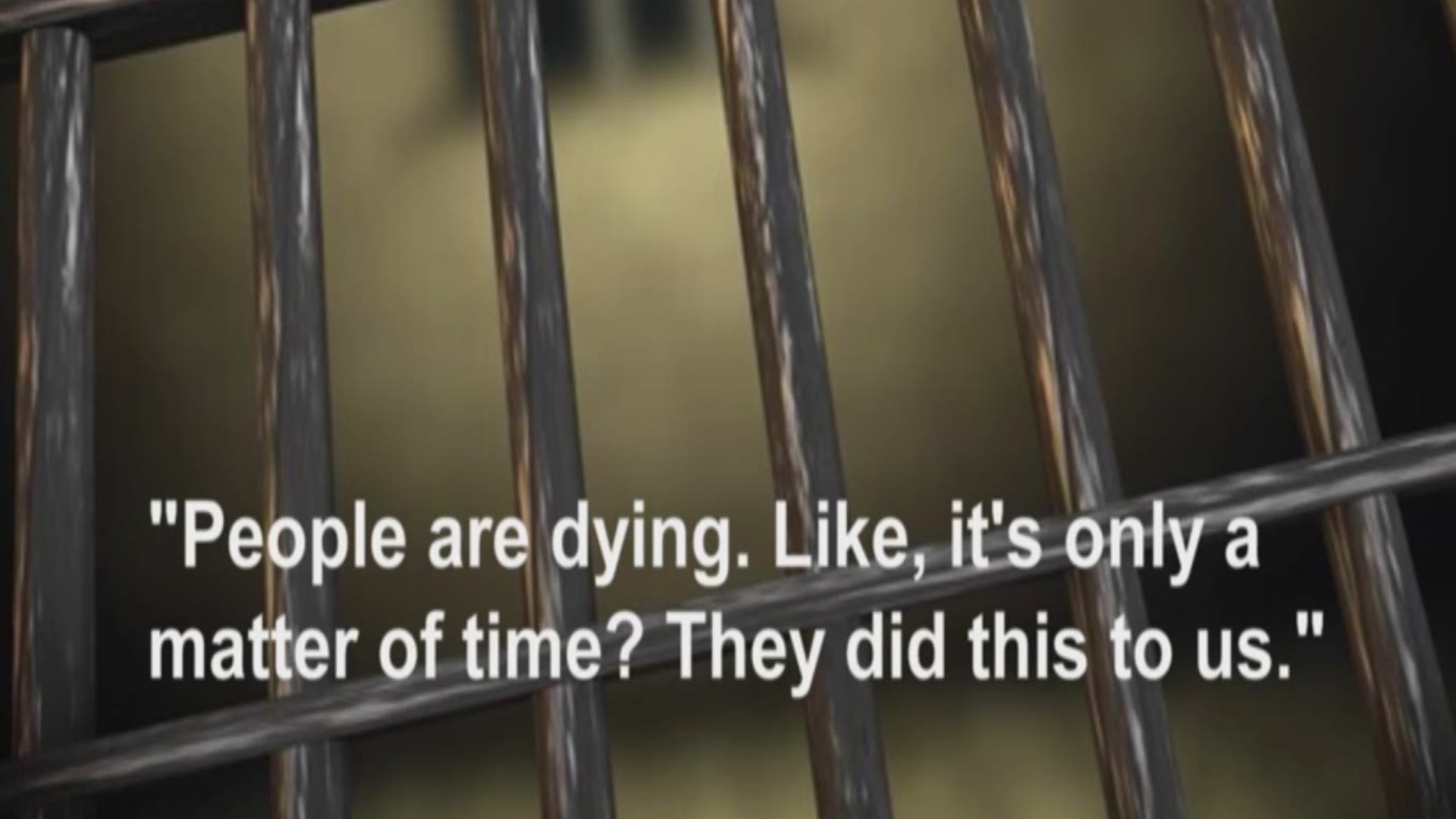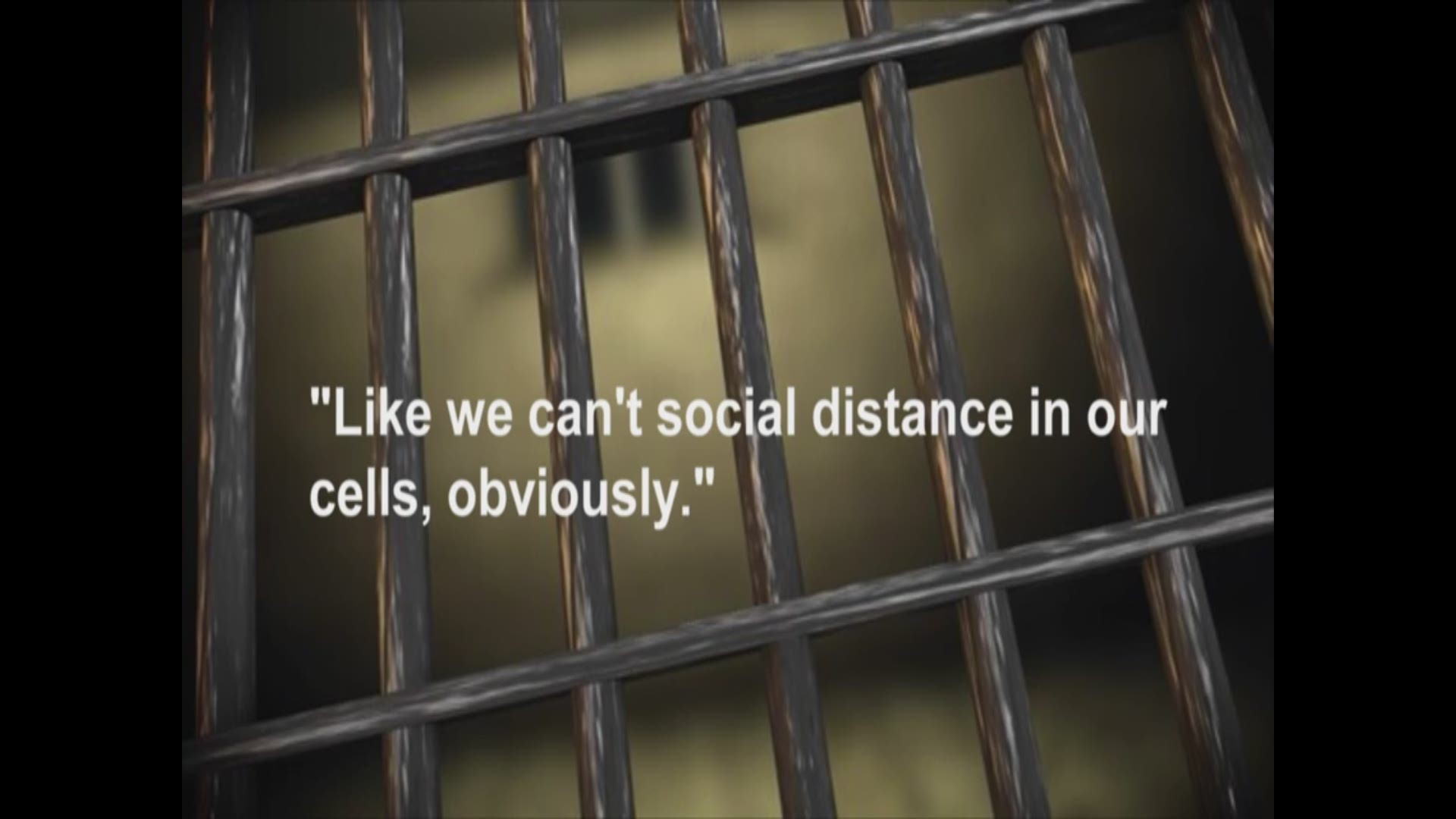FORT DODGE, Iowa — Talon Ladd hasn't had a meal outside of his prison cell for months because of the coronavirus pandemic.
He said he eats while sitting on the toilet, the few places to sit in the 12-by-7-foot cell he shares with two other "big guys", he described in an interview with Local 5.
"Like, we can't social distance in our cells, obviously," Ladd said. "So it's three big guys, and our toilet, and our lockers with our stuff, and all our other stuff. So it's like a shoebox."
Ladd is one of more than 1,000 inmates living at the Fort Dodge Correctional Facility that recently had an outbreak of COVID-19. In early July, mass testing at the facility began after the first few cases were detected. One inmate has passed away because of COVID-19, and the autopsy results for another inmate who died are pending.
In an interview last week with Local 5, Dr. Jerry Greenfield with the Iowa Department of Corrections provided an update on the coronavirus spread at the prison. Hundreds of inmates had tested positive, along with a number of staff members. Our team asked if there was a way to prevent the disease from coming inside the prison.
"I think that's a great question, one that's asked to me probably on a daily basis. For several months our numbers were extremely low especially compared to other states," Dr. Greenfield said. "But as the spread is increasing, and it seemed like it had gone down and now we're seeing another spike, we knew that ... with officers coming and going and other people coming and going .. there was just no way we could ever completely keep it under institutions. But I think we've tried our very best to limit that. And like other states, I know they also have really struggled with this issue of spread inside their facilities. It's just been very difficult."
Local 5 informed Ladd of Dr. Greenfield's statement.
"People are dying. Like, it's only a matter of time? They did this to us," Ladd said. "We weren't coming in and out of the prison and exposing ourselves. We didn't have a choice. We're forced to be in the situation because of the mistakes we made, yeah. Like I'm currently sitting in prison for hunting, you know? And I don't want a death sentence for that."
In the phone interview with Local 5, Ladd alleged that hand sanitizer was taken away from inmates after some began digesting it. He also said that proper face coverings were not initially offered to inmates, and correctional officers failed to comply with the guidelines for wearing proper personal protective equipment at the beginning of the outbreak.
Cord Overton, spokesman for the Department of Corrections, refuted Ladd's claims.
"Our staff are equipped with proper PPE, not only at FDCF, but across the system. The staff has been extremely vigilant in ensuring not only their own use of PPE, but also that inmates are wearing necessary PPE when out of their cells. When they're working with a COVID-19 positive inmate, they are wearing a mask, face shield, and gloves. When working anywhere else around the facility, they are wearing at least a face shield and surgical mask. All inmates have been provided with multiple cloth masks, and are receiving fresh surgical masks as they need them. Hand sanitizer is deployed in areas where hand-washing stations are not easily accessible. It can not be left anywhere unattended as it is a safety issue if it is consumed.
Overton acknowledged that social distancing is an issue at "virtually every prison in the world."
"This is why we medically isolate any inmates that test positive, quarantine and test any inmates we believe were exposed to a positive case, and do routine temperature checks among all the inmates," Overton said.
The Legislative Services Agency recently put out a fiscal update on the DOC. The department's director, Dr. Beth Skinner, said the DOC has reduced its total population by pausing admission into its facilities.
This is being done as part of its mitigation strategy to contain COVID-19, officials said.
Dr. Skinner said right now, as part of those efforts, facilities are currently at 8.8% capacity. That is down from 22% capacity from March.
As of July 10, the inmate population stands at 7,541.
In addition, through a partnership between the DOC and the Board of Parole, 2,194 eligible offenders have been released. Of those, 1,346 are on parole and 355 are on work release. 4,800 reviews have been conducted.



